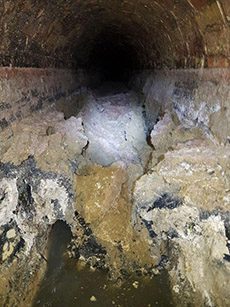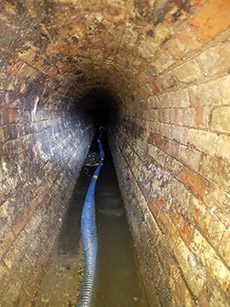On 3 November Thames Water declared victory in its nine-week battle against the “Whitechapel fatberg”.
Teams had been working four metres below an east London street to remove the now famous congealed mass of fat, oil, wet wipes and other sanitary products, which weighed 130 tonnes
Work in Whitechapel Road took longer than first expected due to the damage the fatberg caused to the one-metre-high egg-shaped sewer, with the final stretch removed manually, using brute force and shovels.
Thames Water waste network manager, Alex Saunders, said the publicity will have helped Thames Water get the message across that cooking fat, oils and grease should never go down the plughole. As you have seen, when combined with wet wipes, sanitary products, underwear, nappies, and anything else that shouldn’t be flushed, we’re faced with having to clear out these giant, rock-hard fatbergs.”
Andy Brierley, director of Lanes Utilities, Thames Water’s wastewater network services maintenance partner, added: “Nailing this fatberg was like battling a giant Harry Potter movie creature beneath the streets of London. Around each sewer corner we discovered a new fatberg challenge.


“We’re immensely proud of the team effort made to get the job done. We’re hoping the people of London will now help by always putting fats, oils, and wipes in the bin, not down the drain.”
Thames Water spends around £1m a month clearing blockages from its 68,000 mile sewer network. Eight times every hour a customer suffers a blockage caused by items being flushed away or put down the drain which shouldn’t be.







